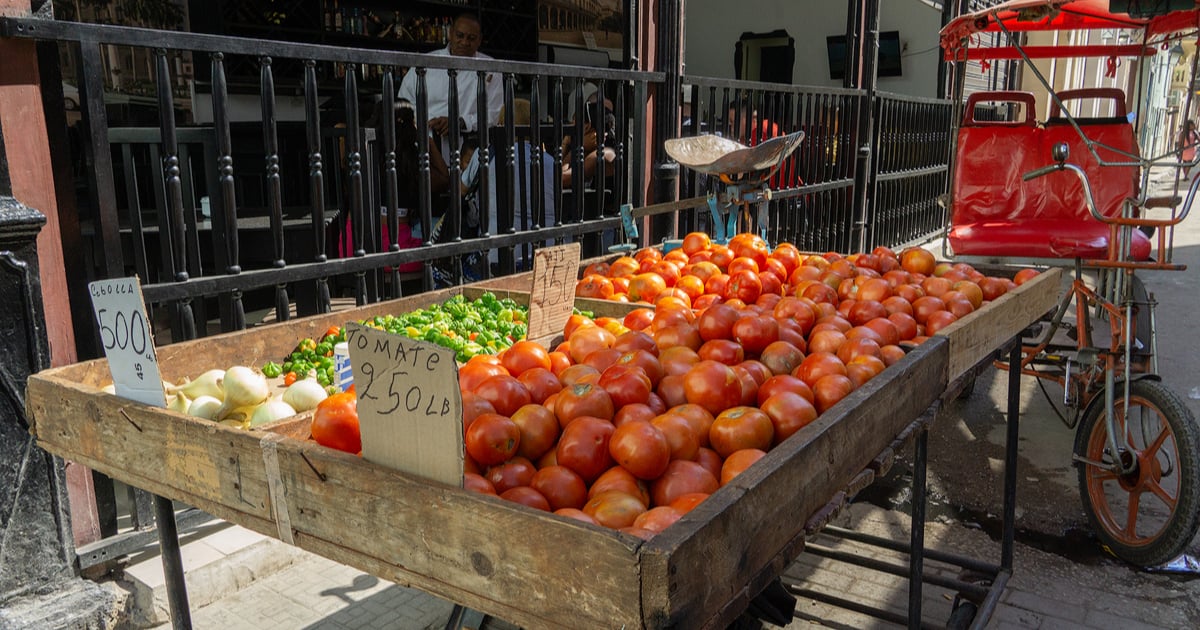Recent figures from the National Office of Statistics and Information (ONEI) show an annual inflation rate of 24.88% for 2024, marking the lowest rate in years. However, this decrease has done little to ease the financial strain on Cuban households, particularly in crucial areas like food, transportation, and essential services.
According to a report by Cubadebate, the most significant annual increase was observed in the categories of alcoholic beverages and tobacco, which soared by 67.24%. This was followed by a 29.04% hike in restaurants and hotels, a 28.15% rise in food and non-alcoholic beverages, and a 24.58% increase in transportation costs. These hikes directly impact families, whose purchasing power has been severely diminished in recent years. Many Cubans struggle to access basic food items such as milk, eggs, sugar, coffee, and even bread.
Other sectors like health (0.85%) and communications (0.67%) showed more modest increases, though they are not without challenges. The scarcity of essential goods, medicines, and fuel, coupled with prolonged power outages, exacerbates an economic crisis that not only strains wallets but also diminishes the quality of life for Cubans.
The Black Market and Perceived Inflation
The widespread belief among the populace is that actual inflation far exceeds official figures, largely due to the heavy reliance on the black market. This market is more dynamic and better stocked than the regulated one, yet its prices are significantly higher. Additionally, the Consumer Price Index (CPI), which gauges inflation, is based on data from 2010, raising questions about its relevance in today's context.
The partial dollarization of essential sectors and the ongoing inability to manage shortages further intensify the economic burden on Cuban households. Although the regime has set price caps for certain products, these measures are frequently unenforced. Prices for food and fuel on the informal market continue to fluctuate uncontrollably.
Government Claims of Inflation Reduction
In December, the Minister of Economy and Planning, Joaquín Alonso Vázquez, claimed that the drop in inflation represents a "positive symptom" in macroeconomic restructuring. He cited the supposed stabilization of certain indicators, such as monetary circulation and fiscal deficit, as outcomes of government measures, including inspections and price caps. However, he conceded that "the results are insufficient to bring down prices."
Meanwhile, Cubans face a bleak outlook, characterized by high living costs, power outages, and limited access to basic services amid a structural crisis that seems far from resolution.
Understanding Cuba's Economic Challenges
What is the current inflation rate in Cuba?
The current annual inflation rate in Cuba is reported to be 24.88% for 2024, according to the National Office of Statistics and Information (ONEI).
Which sectors have experienced the highest price increases?
The sectors with the highest price increases include alcoholic beverages and tobacco, restaurants and hotels, food and non-alcoholic beverages, and transportation.
How does the black market affect inflation in Cuba?
The black market significantly affects inflation as it offers a more dynamic yet expensive alternative to the regulated market, leading to perceptions that real inflation is much higher than official figures suggest.
